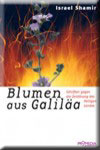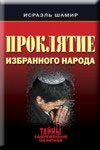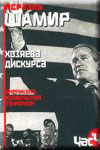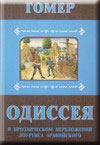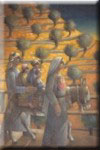I was so taken with an email comment from a local activist named “Beth” that I responded with a mini-essay on the subject: should Americans hate themselves? I hope this interchange will benefit some readers:
Should Americans Hate Themselves?
Ken Freeland
I watched the entire "Collateral Murder" video, and it has become a litmus test for my opinion of people. Anyone who can see it and continue to rationalize anything we are doing in Afghanistan or Iraq is just not someone for whom I can have any respect at all. I'm sick of being pressured to "support the troops," and the next person who yells at me about it is likely to get the semper fi blasted right out of them. I'm done mincing words and being gentle with overeducated, overindulged, and willfully ignorant barbarians about this issue. The question should not be "Why do they hate us?", but "How can we not hate ourselves?"
I've pointed out to many that what we are seeing, in the desperate quest for a casus belli against Iran is the very same campaign of misinformation and fear-mongering that led us into what everyone who has not been lobotomized by the right knows is a disastrous and criminal pre-emptive war.
I replied:
Hi Beth,
You wrote: ‘The question should not be "Why do they hate us?", but "How can we not hate ourselves?"’
I very much appreciate the moral clarity in that juxtaposition. It is a similar problem to the question of who ought to be considered a “self-hating Jew:” those accused as such by the Zionists, or the Zionists themselves?
But I want to urge you to consider the extent to which propaganda (promulgated by the government and disseminated by the mainstream media) plays a key role in enabling this. (This is why I advocate the slogan “Support for Israel is un-American” – because it directly attacks the jugular of the propaganda message that there is something essentially American about supporting Israel, one that has been carefully cultivated for some forty years by the Zionist public relations machine.)
I am reading several books at the moment which are relevant to this discussion. From the first, The Four Cardinal Virtues (by Josef Pieper), this quote attributed to Chilon of Sparta: “Three things are surpassingly difficult: keeping a secret, accepting an injustice, making good use of one’s leisure.” Chilon also asserted, with great relevance, that “ the just state is realized whenever the citizen pays most attention to the laws and least to the orators”[i.e.,to the politicians] . What the Greeks understood as “rhetoric” and spent a great deal of time studying, has evolved today into the art of propaganda. If we grant with Chilon that accepting an injustice is a difficult thing, and yet we notice the plurality of our American countrymen accepting grave injustices inflicted by their government on innocent foreigners, we do well to ask how this is possible, since it is so difficult. The clue is in Chilon’s second statement referred to above: the propaganda message of the politicians makes black into white and white into black in the popular perception.
Elsewhere in his book Pieper examines the virtue of Prudence, which might be defined as the cognitive aspect of moral clarity. An aspect of prudence is “docilitas,” which means “the kind of open-mindedness which recognizes the true variety of things and situations to be experienced and does not cage itself in any presumption of deceptive knowledge.” Now it would seem that it is exactly this “docilitas” that is so lacking in those who acquiesce to war propaganda. But let us note in passing the contradiction between the vice of covetousness and the operation of prudence:
“ ‘Covetousness’ here means. . . immoderate straining for all the possessions which man thinks are needed for his own importance and status. Covetousness means anxious senility, desperate self-preservation, overriding concern for confirmation and security. Need we say how utterly contrary such an attitude is to the fundamental bent of prudence; how impossible just estimate and decision is, without a youthful spirit of brave trust and, as it were, a reckless tossing away of anxious self-preservation, a relinquishment of all egoistic bias towards mere confirmation of the self; how utterly, therefore, the virtue of prudence is dependent upon the constant readiness to ignore the self, the limberness of real humility and objectivity?” (my italics)
Now I assert that here we have here the pithiest possible diagnosis of the moral problem underlying the failure to confront the injustice inherent in America’s foreign policy. Not to put too fine point on it, I would quote once more from this inspired author before leaving his study of the question of moral clarity: “[T]he foremost requirement for the realization of justice is that man turn his eyes away from himself. It is not by chance that in everyday talk the ideas of partiality and injustice come to almost the same thing.” Before we turn to the question of the role of propaganda, I would like to emphasize this underlying overriding concern for confirmation and security, by which we may understand “social acceptance” and “social status,” as the ground on which propaganda is built. The American character is class/status- oriented….and the attainment and retention of social status is the god on whose altar much moral clarity and moral integrity are daily, almost mindlessly, sacrificed. If Americans should hate ourselves, as you suggest, it would be for this apostasy…for preferring social standing in a social order engrafted with endemic injustice (with the unspoken condition that it be ignored), to open-eyed recognition and confrontation of injustice.
Jacques Ellul was a great French sociologist who wrote quite a few books on quite a few subjects. Propaganda: the Formation of Men’s Attitudes (1965) is a masterful study, almost too abstruse to be easily related, but I will try. The most salient passage I can find is on pp 158-9:
“Propaganda attaches itself to man and forces him to play its game because of his overpowering need to be right and just. In every situation, propaganda hands him the proof that he, personally, is in the right, that the action demanded of him is just, even if he has the dark, strong feeling that it is not. Propaganda appeases his tensions and resolves his conflicts. It offers facile, ready-made explanations [e.g.,“they hate us for our freedoms” -KSF], which are transmitted by society and easily believed. At the same time, propaganda has the freshness and novelty which correspond to new situations and give man the impression of having invented new ideals. It provides man with a high ideal that permits man to give in to his passions while seeming to accomplish a great mission. It is precisely when propaganda furnishes man with these justifications, at once individual and collective, that propaganda is most effective. We are not talking here of a simple explanation but of a more profound rationalization, thanks to which man finds himself in full accord with his group and with society, and fully adjusted to his environment, as well as purged, at the same time, of his pangs of conscience and personal insecurity.
“Man, eager for self-justification, throws himself in the direction of a propaganda that justifies him and thus eliminates one of the sources of his anxiety. Propaganda resolves contradictions and restores to man a unitary world in which the demands are in accord with the facts. It gives man a clear and simple call to action that takes precedence over all else. It permits him to participate in the world around him without being in conflict with it, because the action he has been called upon to perform will surely remove all obstacles from the path of realizing the proclaimed ideal.”
So here we see how propaganda puts the icing on the cake: it allows self-interested citizens to have their cake and eat it too; they can remain ensconced in their self-concerned cocoons and still think of themselves as fighting the good fight over there somewhere, by supporting their government (or at the very least, by not protesting against it). Unless and until activists gain a full knowledge of this complex of personal and political subterfuge, and how it motivates the tacit support of the citizenry, and until that knowledge is applied in openly confronting the actual immorality on both levels, then likely we ourselves will not be exercising Prudence, which means, among other things, determining and executing the effective and appropriate response to moral crisis.
Peace,
Ken









